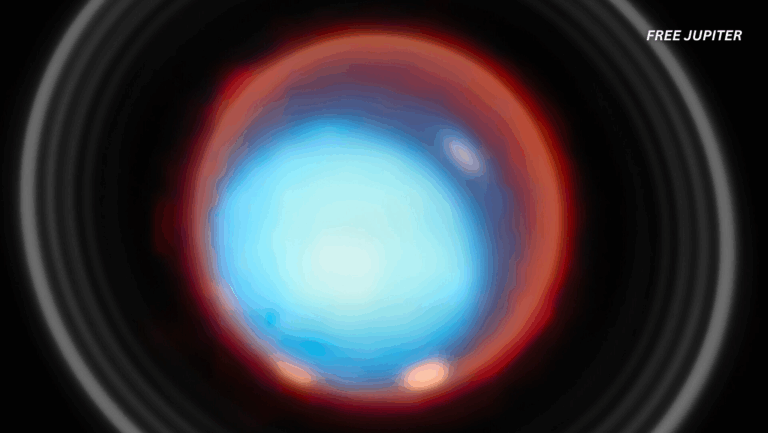Friendly Note: FreeJupiter.com shares general info for curious minds 🌟 Please fact-check all claims—and always check health matters with a professional 💙
It’s something we take for granted every day — the Sun rises, the world lights up, and life continues. But what if that big, burning ball in the sky isn’t just passively shining… what if it knows it’s shining?
That’s not just a poetic musing. Believe it or not, some scientists and philosophers are seriously entertaining the idea that the Sun, our very own star, might possess a form of consciousness.
Let’s be clear: this isn’t about the Sun having feelings, thoughts, or a secret desire to burn a little brighter on Mondays. It’s a strange but thought-provoking theory that taps into some very old ideas — and some very new ones — about what consciousness is and where it might be hiding in the universe.
What Is Consciousness, Anyway?
Before we dive into whether the Sun is self-aware, we need to talk about what consciousness actually means. In simple terms, consciousness is the state of being aware — of yourself, your surroundings, your thoughts, and experiences. Humans have it. Dogs have it. Maybe even octopuses and AI chatbots (debatably).
But does consciousness require a brain? Or can it exist in other forms — even in things that don’t look alive at all?
That’s where things start to get cosmic.
Read more: Lucid Dreaming Isn’t Just Trippy—It’s Power Can Transform Your Entire Life, According to Experts
Meet Panpsychism: The Philosophy That Thinks Everything Might Be Aware
At the center of this idea is a concept called panpsychism (pan- meaning “all,” and -psychism from psyche, meaning “mind” or “soul”). Panpsychism suggests that consciousness might not be something that only pops up in complex brains — it could be a fundamental feature of the universe, baked into every atom, every molecule, every…star.
Think of it like this: just as gravity pulls objects toward each other, panpsychists believe that consciousness — in some tiny, simple form — might exist in everything. Not necessarily full-blown thinking and reasoning, but maybe a faint spark of awareness.
So, in this view, the Sun wouldn’t be “thinking” in the way humans do, but it might feel something, or at least have an inner experience, however basic.
Rupert Sheldrake and the Conscious Star Hypothesis
One of the more well-known voices to support this kind of idea is Rupert Sheldrake, a British biologist and author known for exploring scientific theories that sit outside the mainstream. Sheldrake has long questioned traditional assumptions in biology and consciousness studies, and he’s suggested that the Sun might actually be…aware of itself.
Sheldrake points to the Sun’s complex electromagnetic patterns — those swirling solar flares, sunspots, and energetic rhythms — and proposes that they could act like a kind of cosmic nervous system. Not a brain, exactly, but perhaps something functionally similar.
Could those electromagnetic waves, stretching out across the solar system, serve as a medium for some form of star-based consciousness? Could the Sun’s immense energetic structure allow it to sense, respond, or even — in some unfathomable way — know what it’s doing?
Mainstream scientists would call this speculative at best. But it does make you stop and think.
Read more:Out-of-Body Experiences Suggest Consciousness Exists Outside the Brain, Scientists Say
The Science (and Speculation) Behind It
No one is claiming we’ve found proof that the Sun is conscious. In fact, this theory sits more in the philosophical “what if?” category than in the realm of testable science. But it’s not just being pulled out of nowhere. The idea is partly inspired by new approaches to consciousness that go beyond the brain.
One of these is the Integrated Information Theory (IIT), developed by neuroscientist Giulio Tononi. IIT suggests that consciousness arises not just from the kind of material something is made of, but from the way that information is structured and connected within it.
So, if something — even a star — has a complex enough system for processing information, it might have the capacity for consciousness. It’s a bit like saying, “If it walks like a duck and quacks like a duck, maybe it’s at least a little bit duck-ish.”
In this case, if the Sun processes vast flows of energy and magnetic information in an organized way, could that structure be enough to generate a glimmer of awareness?
Read more: Out-of-Body Experiences Suggest Consciousness Exists Outside the Brain, Scientists Say
What Would a Conscious Sun Even Do?
Let’s indulge the idea for a moment. If the Sun were conscious — even in the faintest, strangest sense — what would that actually mean?
Would it notice Earth and its orbiting neighbors?
Would it choose to send solar flares our way or to hold back a coronal mass ejection?
Would it feel…lonely?
Of course, these are wildly imaginative questions. But that’s the fun of it. This theory opens the door to thinking about the universe in ways that are more alive, more dynamic, and maybe even more connected than we usually consider.
Old Ideas, New Language
It’s worth noting that this isn’t a completely new idea. In ancient times, many cultures believed the Sun was a living being — a god, a guardian, a watchful eye in the sky. From the Egyptian god Ra to the Incan Inti, the Sun has often been personified and worshipped as something powerful and aware.
Modern science tends to strip away those mystical beliefs. But in a strange twist, some modern theories — dressed up in equations and neuroscience — are bringing back a kind of scientific version of those ancient intuitions.
Panpsychism, Integrated Information Theory, and Sheldrake’s solar musings all point to a deeper question: Is consciousness more common than we think?
The Real Takeaway: Expanding Our Minds
At the end of the day, the idea that the Sun might be conscious isn’t about proving a new scientific fact — not yet, anyway. It’s about expanding our imagination and reconsidering how we define life, intelligence, and awareness.
Maybe it’s not so wild to think that the universe itself has some level of awareness woven through it, like threads in a vast cosmic tapestry. And maybe our Sun — the star that gave us life — isn’t just a blazing sphere of gas, but a participant in a universe more awake than we ever realized.
No, we’re not saying the Sun is secretly watching you sunbathe. But the next time you look up at the sky and feel that familiar warmth, you might wonder… is the Sun just shining — or is it somehow knowing it shines?
In Conclusion: A Starry Thought Experiment
So, could the Sun be conscious?
It’s a radical idea, one that walks the line between science, philosophy, and science fiction. While there’s no proof and plenty of doubt, it forces us to reexamine what consciousness really is — and where it might live in the universe.
Sometimes, the boldest questions don’t give us clear answers. But they do shine a light on how much we still have to learn — not just about stars, but about ourselves.










